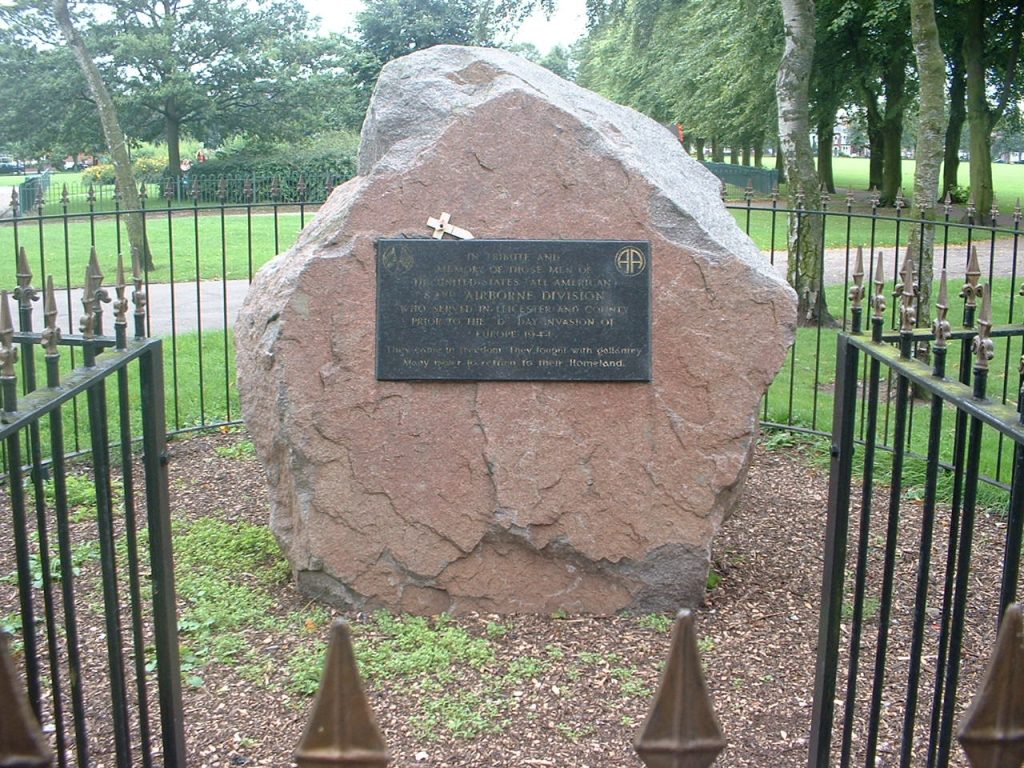The 1980s saw many oral history projects start across the UK. At that point there were plenty of people who had lived through both World War One and World War Two, so many recordings featured memories of these conflicts. While many recordings just cover D-Day as a brief memory, some are detailed accounts of people in the military who fought through Normandy and further into Europe.
From Leicester, we have memories of US troops giving out food and chewing gum to children, and equipment and tanks building up in Braunstone and New Parks. George Langton, who was in the Home Guard, shares a common memory of seeing a vast number of aeroplanes flying overhead on the day itself. Many soldiers left Leicester never to return.

While we have a lot of interviews with men and women who served in the military during WW2, we only have a few with people who were involved with D-Day. Examples include Reginald Spittles who talks about the Normandy campaign in detail, and Newman Addis who talks about it in a general interview, both with Colin Eaton of Northampton Library in 1989/90. In EMOHA’s general collection, Ted White tells a great anecdote about accidentally seeing plans for D-Day at Hounslow Barracks – when cleaning up after a lecture by Field Marshall Alanbrooke, Ted found the doors open and maps of operations on a table. He locked up and didn’t tell anyone, but felt ‘terrified’ about accidentally letting something slip before D-Day (he didn’t!).
David Carey was a professional soldier who served in India and then worked in intelligence prior to D-Day, where he landed on the first day only a few hours before a strong counter attack by the German 21st Panzer Division. I recorded him in 2005 for a series of interviews with men from the Leicestershire Regiment. Listening to it now, it is pretty clear that I thought I would have been scared stiff had I been there!
Transcript:
CH: One has seen all the movie footage of that. When I look at it, I just think I would be terrified. How did people feel at the time? How do you remember feeling?
DC: Well, when you’ve got, I mean, you’re in a situation. You’re there. Right, it’s no good sort of putting your head in the sand, you’ve got to go on, and I think especially when you’re young, as we were then, you felt that, you know, you had to go on. And also, you saw your pals going down. I mean, you have to go on and you got to kill these ********, you know. I think it was… So, anyway I was there at…
CH: Even though you’ve got a Panzer Division you know is coming along the next morning, it’s got to put a little bit of fear into the heart?
DC: It was, I think one was, well, very apprehensive. I would have fear, or what have you, but I mean, what could you do apart from getting the guns in and getting, making certain there was the maximum fire power available when they came in, you know? I always remember the – funny how the sense of smell – I always remember in the, in the dugouts in… the awful, sickly smell of German leather mixed with French cheese. So, after 10 days or, I don’t know, I can’t remember how many days now, and so, we moved out, really, having quite a lot of battles all the way. And one thing I so well remember is that that there were so many cattle, which had been blown up to almost twice their size by the blast of these guns. Wretched things lying on their backs getting a little bit high. But you bless their cotton socks – several times I’ve taken cover behind those cattle, but they were, ohhh. We had several weeks going to attack and counterattack on various hills, but each day seemed to go into the next, you know. I mean, I could no more give you a detailed description of those few weeks than fly.

 Subscribe to Colin Hyde's posts
Subscribe to Colin Hyde's posts